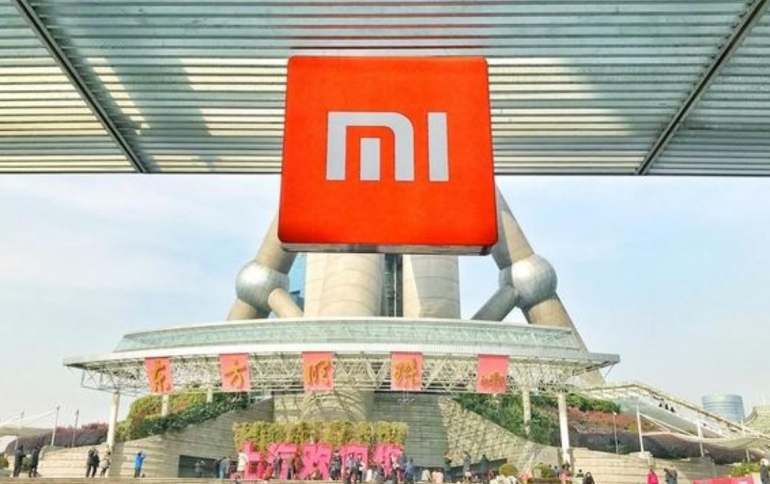
Xiaomi’s Q3 Revenue Surges, Reports Rapid Growth Across All Business Segments
Xiaomi Corp. on Monday announced its unaudited consolidated results for the third quarter of 2018 ended September 30, 2018, reporting a year-on-year revenue increase of 49.1%, driven by robust sales in India and Europe.
The Group recorded revenue of approximately RMB50.846 billion, representing a year-on-year increase of 49.1%, among which international revenue grew 112.7% year-on-year to RMB 22.3 billion, accounting for 43.9% of its total revenue. Net profit for the third quarter was approximately RMB 2.481 billion, versus a 11 billion yuan loss in the same period a year earlier, the company said in a statement.
Xiaomi also said operating profit sank 38.4 percent to 3.59 billion yuan in the third quarter.
Xiaomi Founder, Chairman and CEO Mr. Lei Jun, said: "In the third quarter of 2018, we successfully built on Xiaomi’s impressive heritage, opening up several new avenues on our journey to achieve significant breakthroughs. The strategies to which Xiaomi adheres, such as strengthening the performance of the high-end market, accelerating the development of new retail channels and focusing on AI development and application, all yielded remarkable results during the reporting period. Furthermore, Xiaomi’s new high-potential businesses, including the monetization of internet services apart from smartphones in China, the globalization of our IoT products and our entrance into the white goods market, have all showed promising beginnings. Thanks to all these achievements, we are extremely confident about Xiaomi’s future."
In the third quarter of 2018, Xiaomi’s smartphones segment recorded revenue of approximately RMB35.0 billion, representing an increase of 36.1% year-on-year, which was mainly driven by increases in both smartphone sales volume and the average selling price (ASP). As of October 26, 2018, Xiaomi’s smartphone shipments exceeded 100 million units, achieving the company's full-year target more than two months ahead of schedule. Revenue from the IoT and lifestyle products segment grew the fastest year-on-year by 89.8% to RMB10.8 billion. Meanwhile, revenue from Xiaomi's smart TV and laptop sales increased by 100.3% to RMB4,227.2 million in the third quarter of 2018. In addition, several of the company's ecosystem products, such as the Mi Band, Mi Electric Scooter and Mi VR headset, experienced robust sales growth. Revenue from the internet services segment grew 85.5% year-on-year to RMB4.7 billion in the third quarter of 2018, driven primarily by increasing monetization on Mainland China. Advertising revenue grew by 109.8% year-on-year to RMB3.2 billion, driven by the continuous optimization of Xiaomi's recommendation algorithm, users’ increasing engagement of its internet services, and higher pre-installation revenue.
In the third quarter of 2018, Xiaomi continued to optimize its product portfolio to strengthen its presence in the mid- to high-end smartphone market in mainland China. During the reporting period, the company's smartphone average selling price (ASP) on Mainland China continued its ascent from the previous quarter, increasing 16% year-on-year and 4% quarter-on-quarter. Xiaomi's smartphone ASP outside mainland China also increased by 18% year-on-year, attributable to the increase in the proportion of shipments to Western Europe.
According to Canalys, Xiaomi's smartphone shipments for Western Europe grew 386% year-on-year and the company ranked fourth in terms of smartphone shipments in the third quarter of 2018. Xiaomi's smartphone shipments for India and Indonesia grew 31% and 337%, respectively, helping the company achieve the number one market share position by shipments in India and catapulting to number two in Indonesia. Xiaomi was ranked in the top five in the smartphone markets of 30 countries and regions in terms of shipments in the third quarter of 2018.
As a result of the increased sales of smartphones and user adoption, monthly active users (MAU) of MIUI increased 43.4% from 156.5 million in September 2017 to 224.4 million in September 2018.
In the third quarter of 2018, the Group’s overseas internet services revenue accounted for 4.4% of all internet services revenue. Xiaomi is also seeing a more significant contribution to internet services revenue from non-smartphone devices, with TV internet services revenue accounting for 5.4% of its total internet services revenue in the third quarter of 2018.
Artificial intelligence + IoT forms one of Xiaomi’s core strategies. As of September 2018, Xiaomi’s AI assistant had more than 34 million monthly active users, making it one of the most used AI voice interactive platforms on Mainland China. As of the end of the third quarter of 2018, the number of connected IoT devices (excluding smartphones and laptops) on Xiaomi’s IoT platform reached approximately 132 million units, an increase of 13.8% from the previous quarter. There were about 1.98 million users who owned more than five Xiaomi IoT devices, excluding smartphones and laptops, representing an increase of 16.5% quarter-on-quarter.
Xiaomi is also focusing on building an efficient new retail system by continuously developing efficient offline channels while enhancing its online channels. As of September 30, 2018, Xiaomi had 499 Mi Homes on Mainland China, mainly in first- and second-tier cities. Moreover, to further penetrate China’s lower tier cities and rural areas, by the end of the third quarter of 2018, Xiaomi had more than 1,100 authorized stores in total, compared with more than 360 authorized stores by the end of the second quarter of this year
On November 19, 2018, Xiaomi and Meitu, Inc. entered into a strategic cooperation framework agreement. Under the agreement, Xiaomi will receive 30-year exclusive global licensing of Meitu’s branded smartphones and certain smart hardware products.
The smartphone maker raised $4.72 billion in an initial public offering in June, valuing the firm at about $54 billion - around half of some earlier industry estimates of $100 billion.





















